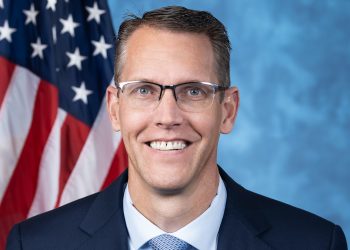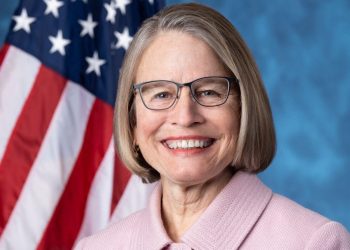WASHINGTON – On Wednesday, the U.S. House of Representatives passed two pieces of legislation originally introduced by U.S. Rep. Randy Feenstra, R-Iowa, the National Weather Service Communications Improvement Act and the NOAA Chief Scientist Act. They both unanimously passed the House Science, Space, and Technology Committee – where Feenstra serves as Ranking Member of the Research and Technology Subcommittee – earlier this year.
The passage of these bills follows the passage of two Feenstra-sponsored pieces of legislation that were included in the FY ’23 National Defense Authorization Act, culminating in a total of four bills introduced by Feenstra that have passed the House this Congress.
“When I was elected to Congress, I promised that I would get things done for our families, farmers, small businesses, and thriving communities in Iowa,” Feenstra said. “My two bills that passed the House represent my commitment to finding solutions to the problems facing our state and nation. From equipping the National Weather Service with modern technology to keep people informed and out of harm’s way during severe storms to establishing the highest employment standards for NOAA officials who monitor natural disasters, these pieces of legislation will save lives and protect our communities. I encourage my Senate colleagues to support these bills and look forward to seeing them become law.”
The National Weather Service Communications Improvement Act would modernize the National Weather Service’s (NWS) outdated communications network – NWS Chat – which disseminates critical, time-sensitive information to broadcasters, emergency managers, and the general public during severe weather events. As part of its Integrated Dissemination Program update, NWS has identified several systematic upgrades critical to its emergency communications operation, including the need to replace NWS Chat. More specifically, this legislation would direct the NWS Director to review and select an off-the-shelf commercial alternative to NWS Chat that prioritizes reliability and security.
The NOAA Chief Scientist Act would establish new minimum qualification requirements and outline new responsibilities for the position of Chief Scientist at the National Oceanic and Atmospheric Administration (NOAA). Additionally, this legislation would direct the Chief Scientist to establish and enforce high scientific integrity standards within NOAA, and require the President of the United States to consider recommendations from reputable scientific organizations when selecting the Chief Scientist.
The bill was co-sponsored by Iowa’s U.S. House delegation.
“Iowans know that every second matters during a severe weather event. I’m pleased to see this legislation, which ensures the National Weather Service has the resources it needs to modernize its communications has passed the House,” U.S. Rep. Cindy Axne, D-Iowa, said in a released statement. “This legislation has the potential to save lives and will bring us one step closer to preventing communication issues and ensuring Iowans have the information they need to protect themselves. I appreciated working with Rep. Feenstra and the rest of the Iowa delegation to support this commonsense and important legislation.”
“Every second counts when a disaster strikes. I was proud to work in a bipartisan manner with my colleagues from Iowa on this legislation to help modernize the NWS Chat system and ensure that Iowans have the information necessary to stay safe during severe weather,” U.S. Rep. Ashley Hinson, R-Iowa, said in an emailed statement.
U.S. Rep. Mariannette Miller-Meeks, R-Iowa, also co-sponsored the legislation, but did not offer a public statement prior to publication.













